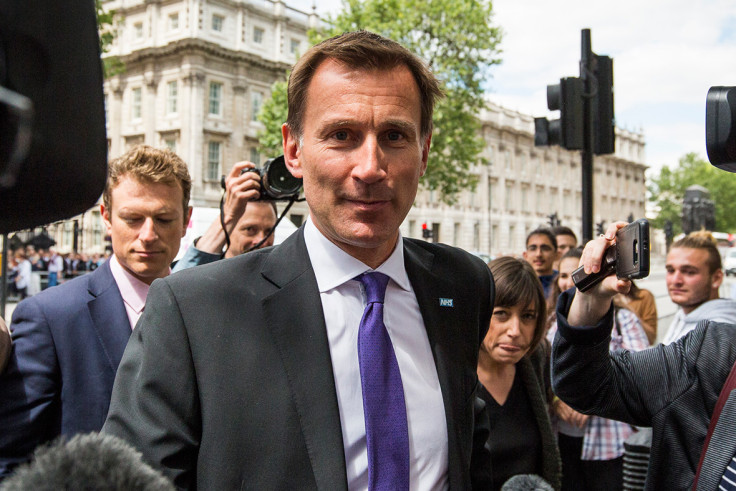NHS bosses warn funding urgently needed to stop 'draconian rationing' of treatment
Hospital chiefs warn 'unpalatable' decisions over care and jobs are coming.
NHS chiefs in England have delivered a stark warning to politicians, saying that it can no longer continue to meet demands with the current levels of funding.
Inadequate funding over a period of years mean that unless extra investment is announced in the Autumn Statement in November, drastic action by hospital bosses could follow.
This includes cutting staff, charging for care or even "draconian rationing" of treatment, according to a bleak prognosis by NHS Providers, the body which represents hospitals across England.
"Despite the best efforts of hard-working staff, hospital accident and emergency performance is now the worst it has ever been," Chris Hopson, chief executive of NHS Providers wrote in The Observer.
"In the first three months of this year [2016], only four of the 138 large A&E departments saw the required 95% of patients within four hours.
"One in 10 patients had to wait more than four hours, the highest level at this time of year since 2003-04."
Around 80% of England's acute hospitals are in financial deficit, in stark contrast to 5% just three years ago. Missed A&E waiting times have also skyrocketed from 10% to 90%.
"The NHS is increasingly failing to do the job it wants to do, and the public needs it to do, through no fault of its own," Hopson noted. "Thanks to the dedication of staff, NHS performance rarely goes off the edge of a cliff. As the 1990s showed, instead we get a long, slow decline that is only fully visible in retrospect.
"It's therefore difficult to isolate a single point in that downward trajectory to sound a warning bell. But NHS trust bosses are now ringing that bell – we face a stark choice of investing the resources required to keep up with demand or watching the NHS slowly deteriorate."
According to Department of Health data published by the BBC, the NHS had a budget surplus of between £450m-£550m ($600m-$730m) per financial year, during 2009-2013.
From the 2013-14 financial year, the NHS's began running a deficit. Currently, the NHS is facing a budget deficit of approximately £2.25bn.
NHS forced to 'deliver the impossible'
Speaking on the Andrew Marr show, Hopson added that Britain's treasured health service is "being asked to deliver the impossible and then being chastised when it inevitably falls short".
Chris Ham, the chief executive of the King's Fund think tank, said it is unrealistic to expect NHS staff to deliver on the Conservative government's pledges, such as the seven-day services, whilst also meeting waiting time targets and slashing financial deficits.
"With winter approaching, the government should heed the warning signs rather than wait for a full-scale crisis to develop," said Ham.
Hopson's remarks come as the Commons Health Select Committee prepares to grill senior NHS England directors and Health Minister Philip Dunne on Monday (12 September). The committee will decide whether to launch a special inquiry into the state of the NHS in England.

A government spokesman said: "On the back of a strong economy, we are giving the NHS the £10bn it asked for to fund its own plan for the future – including almost £4bn this year to transform services and improve standards of care.
"We know the NHS is under pressure because of our ageing population, but we rightly expect the service to continue to ensure that patients get treated quickly."
Speaking to the Guardian, Norman Lamb, the Liberal Democrat MP who was a health minister in the Tory-Lib Dem coalition, described Hopson's statements as an "absolutely accurate reflection" of the state of the NHS, and that "the government is in total denial" about the approaching crisis facing the health service.
He went on to accuse the government of continuing to "mislead" the public.
"Ministers refer to '£10bn extra', which to many people will seem a lot of money. But that £10bn is being stretched in a number of directions, including to pay for the seven-day NHS.
"Everyone who has looked into the finances of both the NHS and care system knows that this is nowhere near enough. We are the world's fifth or sixth largest economy so it's really horrendous that, despite our relative wealth, we have a health and social care system that is on its knees," he said.
© Copyright IBTimes 2025. All rights reserved.






















